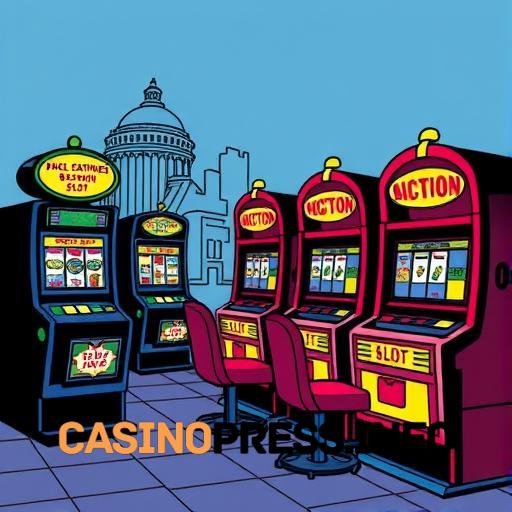24-Hour Slot Machines in Britain: A Necessary Evil?

Summary: El debate sobre la necesidad de máquinas tragamonedas disponibles las 24 horas en Gran Bretaña implica sopesar los beneficios económicos potenciales con las graves consecuencias sociales y de salud pública relacionadas con el aumento de la adicción al juego.
Table of Contents
The Debate Surrounding 24-Hour Slot Machines
The question of whether Britain needs 24-hour slot machines is a complex one, sparking heated debate among lawmakers, public health officials, and the gambling industry itself. Proponents argue that extending operating hours would boost the economy, generating revenue through increased taxes and employment opportunities. They might point to the convenience factor for players and the potential for attracting tourism. However, critics raise serious concerns about the potential for increased gambling addiction and the associated social and health problems. The availability of slot machines around the clock raises the risk of compulsive gambling behaviour, particularly amongst vulnerable individuals. This constant access could exacerbate existing problems and lead to a rise in gambling-related harms.
Economic Arguments for and Against
While proponents highlight the potential economic benefits of 24-hour slot machines, including increased tax revenue and job creation, a thorough cost-benefit analysis is crucial. The potential economic gains must be weighed against the substantial costs associated with treating gambling addiction, including healthcare expenses, lost productivity, and the social burden on families and communities. Furthermore, the economic benefits may be short-lived if the negative consequences of increased addiction outweigh the initial revenue gains. A comprehensive study considering both short-term and long-term economic impacts is needed to make an informed decision.
Social Impact and Public Health Concerns
The social impact of 24-hour slot machine availability is a significant concern. Studies have linked increased access to gambling to higher rates of addiction, debt, family breakdown, and even crime. The potential for harm extends beyond the individual gambler, affecting families, communities, and the wider societal fabric. The normalization of gambling at all hours could desensitize individuals to the risks, potentially leading to increased participation and a higher prevalence of problem gambling. Public health initiatives should prioritize harm reduction strategies and responsible gambling campaigns to mitigate the negative consequences of readily accessible gambling.
Key Takeaway
The decision regarding 24-hour slot machines requires a balanced assessment of economic benefits against the significant social and public health consequences of increased gambling addiction.
| Potential Benefit | Potential Negative Consequence |
|---|---|
| Increased tax revenue | Rise in gambling addiction |
| Job creation | Increased crime rates |
| Tourism boost | Family breakdown and debt |
FAQs
Potential economic benefits include increased tax revenue for the government and job creation within the gambling industry. However, these potential benefits must be carefully weighed against the potential costs.
Increased gambling addiction, financial problems, family breakdown, and increased crime rates are all potential social costs associated with 24/7 slot machine access.
Yes, various regulations exist, but their effectiveness in preventing problem gambling is a subject of ongoing debate and research. Further measures may be needed to effectively address the potential harms of increased gambling access.
Responsible gambling initiatives play a crucial role in educating the public about the risks of gambling addiction and promoting safer gambling practices. These initiatives are vital in mitigating the potential harms associated with increased gambling access.












